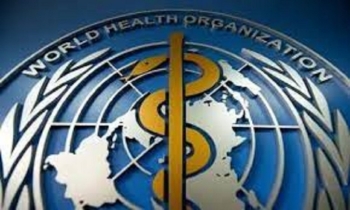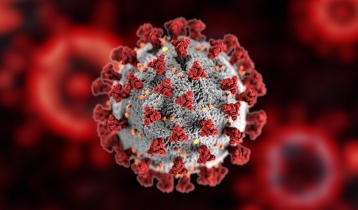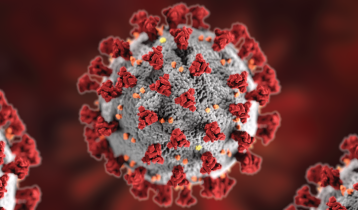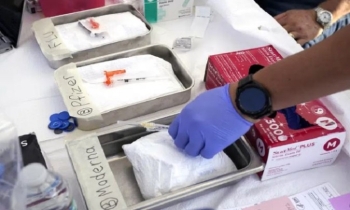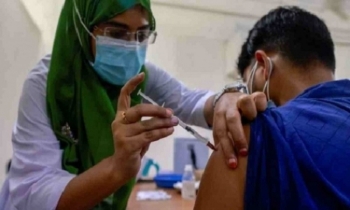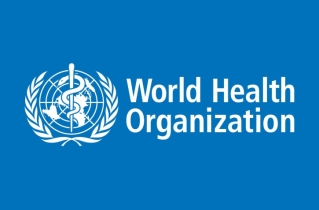New Covid wave ensues, warn experts
Ainul Haque Royal || BusinessInsider
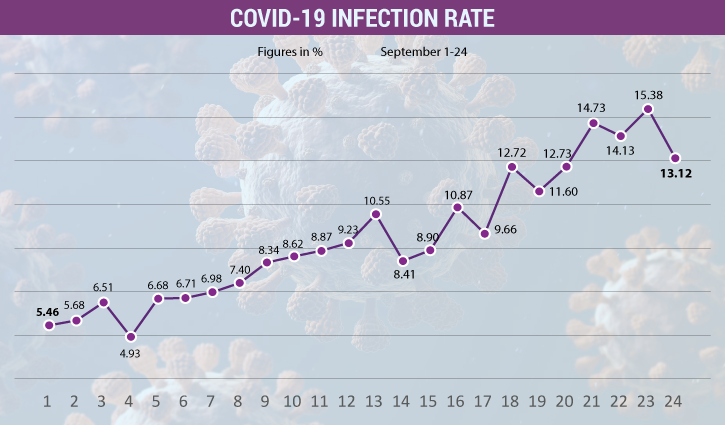
Graphics: Business Insider Bangladesh
The public health experts are afraid that the sixth wave of coronavirus has reigned in across the country, as the daily case positivity rate exceeded 15 percent on Friday, the highest in the last 73 days.
Some 200 to 250 cases of coronavirus were detected daily on average at the beginning of September and around 600 cases were found positive in the last week.
The second week of the current month saw over five percent infection rate on average while the third week experienced over 10 percent infection rate, according to the Covid-19 dashboard of the Directorate General of Health Services (DGHS).
A total of 3,086 cases were found positive in the last week as against 2,336 in the previous week. It shows a 32 percent hike in the case positivity rate.
Last Tuesday, five people died from the infection and health experts are holding the Omicron variant of Covid-19 responsible for these fatalities.
As the new spate of coronavirus is appearing in a different way due to its extraordinary mutation, wearing masks is only the remedy, if any, according to health experts.
The increasing rate of infection was witnessed in the last June due to the surge of the Omicron variant and over 30,000 people were detected positive for the virus. Besides, the rate declined in August as the health authorities detected some 6,500 cases that month.
But it’s a matter of grave concern that the health authorities did find over 7,000 cases in the 20 days of September and this time around the culprit is Omicron.
Meanwhile, the National Technical Advisory Committee on Coronavirus has advised people not to get anxious but maintain health guidelines including wearing masks, social distancing and washing hands.
Bangladesh confirmed the first case of coronavirus on March 8, 2020, and since then the country has so far been confronted with five waves and the time span of one wave to another was two to three months on average.
But, the fifth wave that began in the second week of June of the current year continued until July and within a span of a month the sixth wave of coronavirus hit the country.
The increasing trend of infection started declining at the end of July and the daily case positivity rate started decreasing below five percent.
At the time, the health experts predicted that there would be more time for the sixth wave and it may not stay for long due to the massive vaccination programme in the country.
While talking to Business Insider Bangladesh, Prof Muzaherul Huq, former adviser, South-East Asia region, World Health Organization (WHO) said, “Many experts are terming the fresh surge as the sixth wave. But I like to brand it as a new wave and it will take a huge toll on people with comorbidities if the government does not undertake serious measures to halt its spread right now.”
“Early detection, isolation, vaccination and ensuring health guidelines can help reduce the risk of the new wave,” Huq, also founder, the Public Health Foundation of Bangladesh, said.
There is a sheer possibility of community transmission of the virus and if it happens, the older people may have higher chances to die in the near future, he said.
Responding to a query, he said the infection rate is high but the causality rate is seen as lower because the majority of people have already been vaccinated.
After the first and second doses, the preventive dose is a must to stay safe from the infection, said the health expert.
The government will have to engage law enforcement agencies, local level public representatives and district and upazila level health officials to make its efforts successful in containing the new wave of the virus.
While talking to the correspondent, an official of the icddrb wishing not to be named, said that their recent experiment found the Omicron and its some sub-variant responsible for the recent surge in the infection rate of the coronavirus.
Referring to their findings, he said the country is now passing through a fresh wave of the coronavirus caused by the Omicron and its sub-variants.
The country’s 77 percent and 71 percent of people have been brought under the coverage of first and second-dose vaccines respectively while 26 percent of people have so far received their booster doses, according to the DGHS.
The government has already inoculated 30 crore vaccines but 33 lakh and 94 lakh people are still out of coverage of the first and second doses of the vials across the country.

